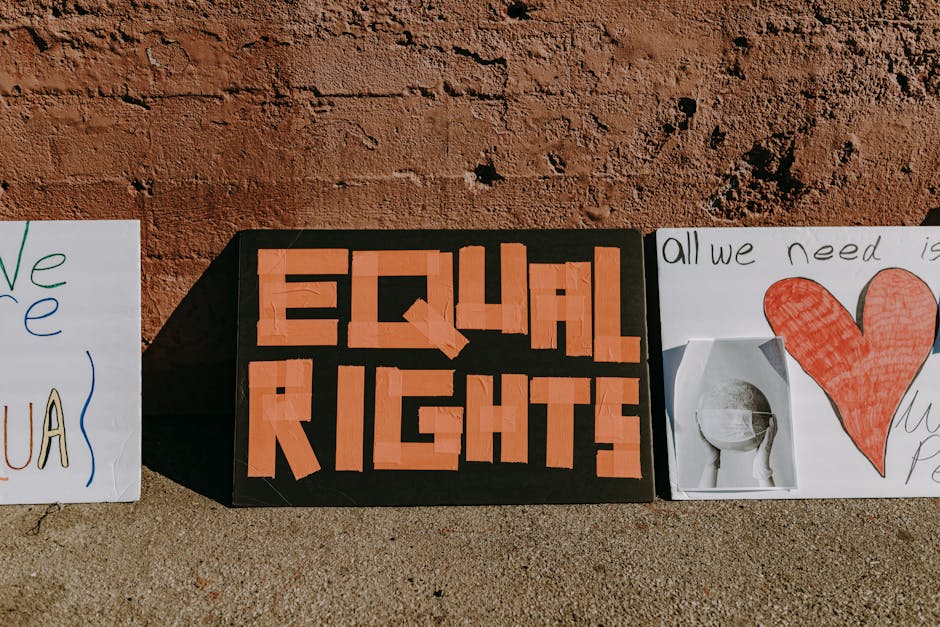Political equality, a cornerstone of democratic ideals, remains a deceptively elusive goal. While formal equality before the law and the right to vote are often enshrined in constitutions worldwide, achieving genuine equality in political participation, influence, and outcomes remains a persistent challenge. This exploration delves into the multifaceted nature of political equality, examining the obstacles that hinder its attainment and evaluating the potential pathways towards a more equitable system.
The very definition of “true equality” in politics is fraught with complexities. A simple numerical representation of various groups in political bodies may not translate into substantial influence or impact. Consider, for instance, the issue of representation for minority groups. Even if a specific demographic is proportionally represented in legislative bodies, the absence of diverse perspectives and experiences within political discourse can still lead to policies that do not effectively address the needs of all members of society. A more nuanced understanding of political equality must encompass not only representation but also the capacity for individuals and groups to actively engage in shaping policy.
Several factors contribute to the enduring struggle for true political equality. A primary obstacle is systemic bias. Preconceived notions, stereotypes, and entrenched power structures often disadvantage particular groups, hindering their access to resources, information, and political platforms. Historical injustices, such as discriminatory laws and practices, frequently leave lasting legacies of inequality, making it difficult to dismantle entrenched power dynamics. For example, the legacy of colonialism continues to affect political representation and resource allocation in formerly colonized nations.
Further compounding the problem are economic disparities. Access to political participation is often directly correlated with economic standing. Individuals with greater financial resources can afford sophisticated campaigns, professional lobbying efforts, and targeted media outreach, effectively amplifying their voices and potentially diminishing the influence of those with fewer resources. Political campaigns are exceptionally expensive endeavours, often leading to situations where wealthy donors exert undue influence on the political process. This inequality of economic power frequently translates into unequal political influence.
A significant challenge also stems from the complexities of political communication. The ability to effectively communicate political ideas and connect with constituents can differ significantly. This difference may be based on access to quality education, effective communication skills, or the ease of understanding complex policy issues. Differences in levels of digital literacy, media literacy, and access to reliable information sources further exacerbate this disparity. An uneven playing field in political communication often marginalises certain groups, hindering their ability to advocate for their interests and effectively participate in the political process.
Addressing these systemic challenges necessitates a multi-pronged approach. Implementing measures to reduce economic inequality is crucial. This includes policies that promote equitable access to education, healthcare, and employment opportunities, thereby empowering individuals to engage more actively in the political sphere. Furthermore, reforms to campaign finance laws could help level the playing field for candidates from diverse backgrounds. Campaign finance reform, while difficult to implement, would certainly reduce the undue influence of wealthy donors.
Promoting diversity in political leadership and representation is another essential aspect of achieving true political equality. Quotas, while sometimes controversial, can ensure that individuals from historically underrepresented groups are considered for political appointments and positions. However, these measures alone are insufficient without a concomitant effort to foster a culture of inclusivity and respect within political institutions.
A more nuanced perspective on political equality also necessitates examining the impact of political ideologies and policies on different groups. Policies that are seemingly neutral can have disparate impacts depending on the socio-economic backgrounds of those affected. A critical examination of the potential consequences of policies on various groups is crucial for achieving true equity. By incorporating diverse perspectives in policy formulation and implementation, we can strive towards outcomes that truly benefit all members of society.
Furthermore, enhanced efforts are needed to enhance public awareness and participation. Promoting civic education and engagement, particularly within marginalized communities, is vital to fostering an informed and active citizenry. Public forums, community engagement initiatives, and readily accessible information can play a key role in empowering individuals to voice their concerns and contribute meaningfully to the political process.
Addressing the intricate interplay of socioeconomic factors, historical biases, and communication disparities is essential in the pursuit of political equality. Achieving true political equality is not merely a matter of equal representation; it is about creating a system where all voices are heard, all perspectives are valued, and all individuals have the opportunity to participate fully in shaping their political future. It requires a comprehensive and sustained commitment to dismantling systemic barriers, promoting equitable access to resources, fostering an inclusive environment, and ensuring that policies effectively serve the needs of all members of society. This is a complex, ongoing, and necessarily multifaceted process. There is no easy answer to achieving true equality in politics, but the ongoing quest remains crucial for a truly just and democratic society.












